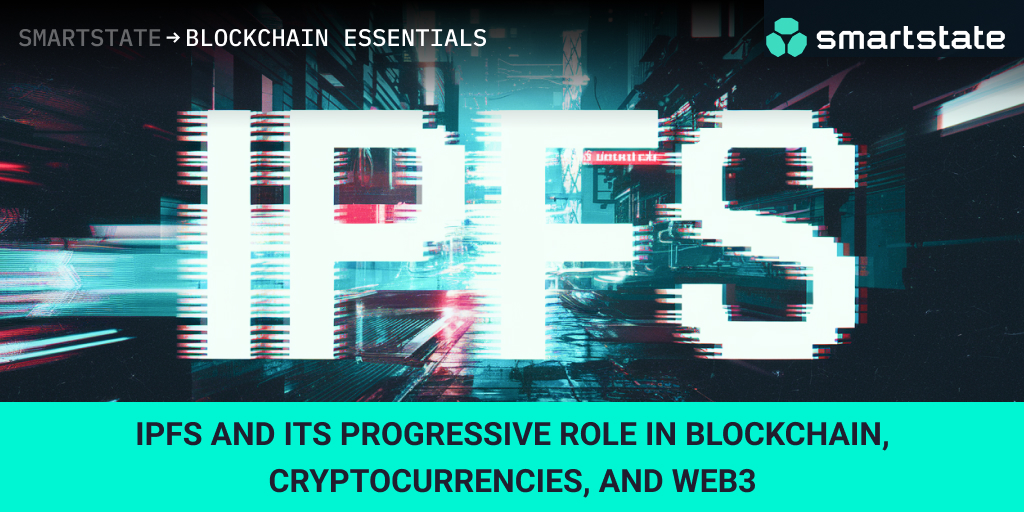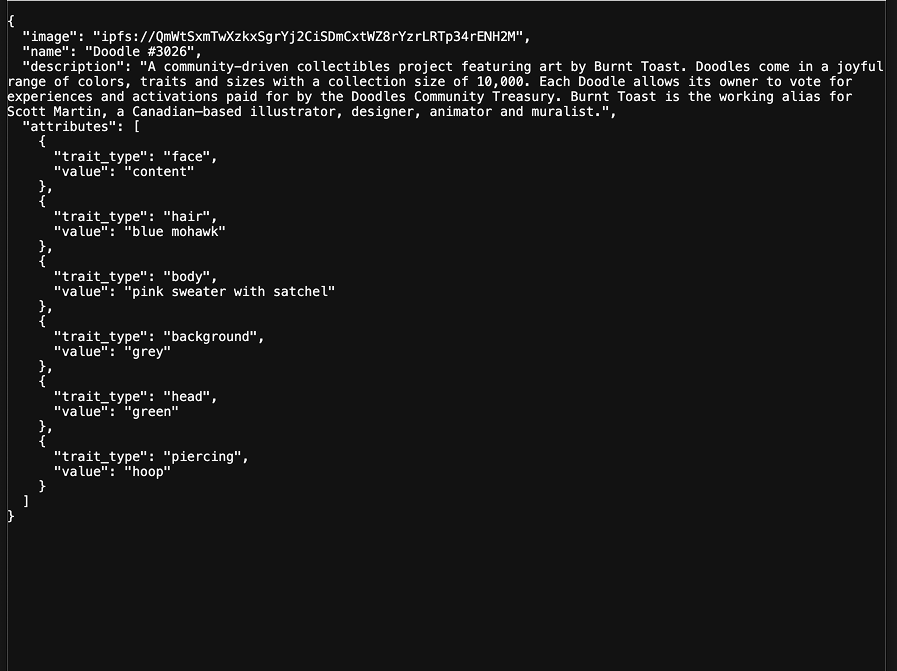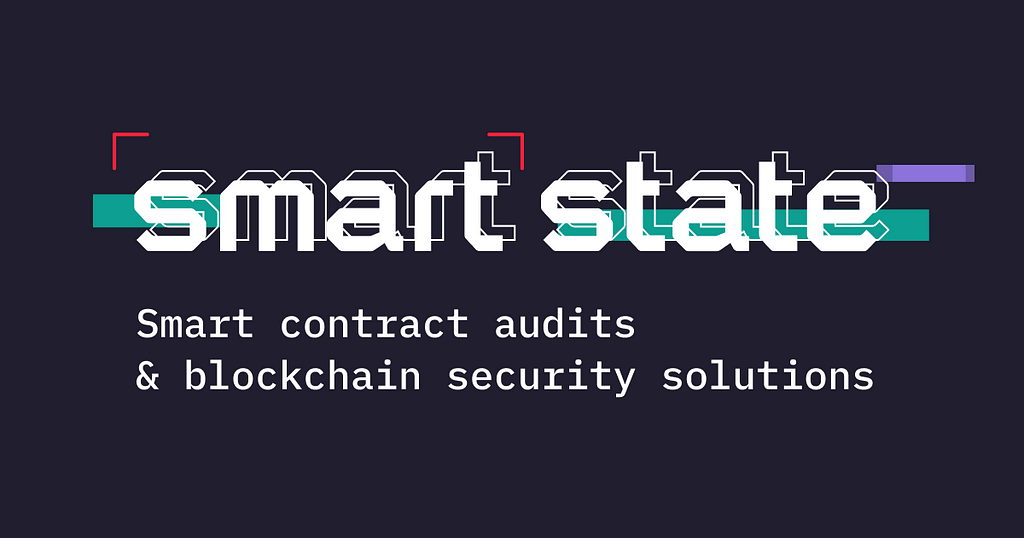IPFS and its progressive role in blockchain, cryptocurrencies, and Web3
 IPFS and its progressive role in blockchain, cryptocurrencies, and Web3
IPFS and its progressive role in blockchain, cryptocurrencies, and Web3You may have heard about ENS on Ethereum or NFT metadata on Solana. These things are united by IPFS — InterPlanetary File System, a Web3 alternative to ‘classical’ internet. IPFS is a technology that organically fits into the principles of blockchain, cryptocurrencies, and developing ecosystems of Web3. As a decentralized protocol, IPFS challenges traditional centralized models of the internet, offering a reliable alternative for data storage, exchange, and access.
What is IPFS?IPFS is a distributed file system designed to make the internet more resilient, efficient, and user-oriented. Unlike HTTP, which is based on location-based addressing (e.g., accessing a file by URL address of a server), IPFS uses content-based addressing. Each file uploaded to IPFS is assigned a unique cryptographic hash, known as a content identifier (CID), based on its contents. This hash allows users to retrieve the file from any node in the network where it is stored, eliminating dependence on centralized servers.
Key features of IPFS include:
- Decentralized storage: Files are broken down into fragments and distributed across the global network of nodes, excluding single points of failure.
- Content addressing: Access to data is achieved through its CID, ensuring integrity and authenticity.
- Peer-to-peer exchange: Nodes exchange data directly, similar to BitTorrent, but with extended capabilities such as versioning and deduplication.
- Autonomous access: Cached files can be accessed in autonomous mode, ideal for low-bandwidth environments.
Blockchains, such as Ethereum and Solana, face significant limitations when working with large files. Storing such data on the chain is prohibitively expensive due to block size restrictions and gas fees. IPFS eliminates this limitation by providing a decentralized, scalable solution for data storage. In blockchain ecosystems, IPFS often serves as an off-chain level of storage. Large files e.g., images, videos, or metadata are uploaded to IPFS, generating a CID that is stored in the blockchain. This CID acts as a pointer, ensuring data integrity and accessibility without bloating the chain.
 Doodle #3026 NFT…
Doodle #3026 NFT… … and its IPFS metadata
… and its IPFS metadataMost NFTs store their metadata in IPFS, with the CID embedded in the token’s metadata on Ethereum or Solana. Platforms like OpenSea and Rarible rely on IPFS for ensuring availability and verifying NFT assets. dApps also use IPFS hosting frontend, static assets, or user content on IPFS, reducing dependence on centralized servers and aligning with the decentralized ethos of Web3. DAOs use IPFS to store proposals, voting protocols, or documentation in a decentralized, immutable manner.
IPFS and Web3Web3 represents an internet where users control their data, identity, and interactions, freeing themselves from centralized authorities. IPFS is a cornerstone of this vision, providing a level of storage and data distribution for Web3 applications. Its integration with blockchain technologies enables decentralized websites: ENS and IPFS allow developers to create websites fully hosted on decentralized infrastructure. For example, the domain .eth can reference a site stored on IPFS, accessible through its CID.
Problems and LimitationsDespite its potential, IPFS faces several problems that impact its adoption in blockchain and Web3:
Data persistence: By default, IPFS relies on nodes voluntarily storing data. Without pinning, files may become inaccessible if no node is caching them. Filecoin mitigates this issue but involves additional costs and complexity.
Consequences: Projects must allocate resources for pinning or Filecoin services, which may deter small developers.
Performance: Retrieving files from IPFS can be slower than accessing centralized servers, especially for less popular content with fewer hosting nodes. Public gateways like ipfs.io also introduce delays.
Consequences: dApps with high traffic or sensitive to latency may require additional optimization, such as CDNs or multiple pinning nodes.
Ease of use and acceptance: IPFS requires technical knowledge for setup and maintenance, especially for running nodes or integrating with blockchain systems. Although services like Pinata and Fleek simplify this task, their application remains limited compared to centralized hosting.
Consequences: Non-technical users may find IPFS complex, slowing its widespread adoption.
Regulatory issues: The decentralized nature of IPFS makes it challenging to remove illegal or disputed content, increasing potential legal risks for projects storing confidential data.
Consequences: Projects must carefully orient themselves in the regulatory framework, especially in jurisdictions with strict laws on content.
ConclusionIPFS is a transformative technology that complements blockchain and cryptocurrency ecosystems by providing a decentralized, scalable, and censorship-resistant solution for data storage. Its integration with Filecoin, NFTs, dApps, DAOs, and DeFi underscores its importance in the landscape of Web3. By ensuring sovereignty, resilience, and compatibility of data, IPFS helps build a decentralized internet that expands user possibilities and aligns with the ethos of blockchain technology.
Developers, companies, and innovators in the cryptocurrency space can leverage IPFS as a powerful tool for creating robust, user-oriented applications. Although issues like persistence and performance remain, continuous improvement and community acceptance pave the way for IPFS to become the foundation of Web3. As the decentralized network of IPFS takes shape, it redefines the ways data is stored, exchanged, and accessed in an internet governed by blockchain.
 SmartState: Top-notch smart contract audits & blockchain security solutionsAbout SmartState
SmartState: Top-notch smart contract audits & blockchain security solutionsAbout SmartStateLaunched in 2019 and incorporated in Dubai, SmartState is an independent Web3 security company providing top-notch external security audits and enterprise level blockchain security services.
We’ve built a professional team of skilled white-hat hackers, cyber security experts, analysts and developers. The SmartState team have extensive experience in ethical hacking and cyber security, blockchain & Web3 development, financial and economic sectors.
We’ve conducted 1000+ security audits so far. None of code audited by SmartState had been hacked. Blockchains like TON, large projects like EYWA, 1inch and CrossCurve & exchanges such as Binance and KuCoin rely on our experience.
